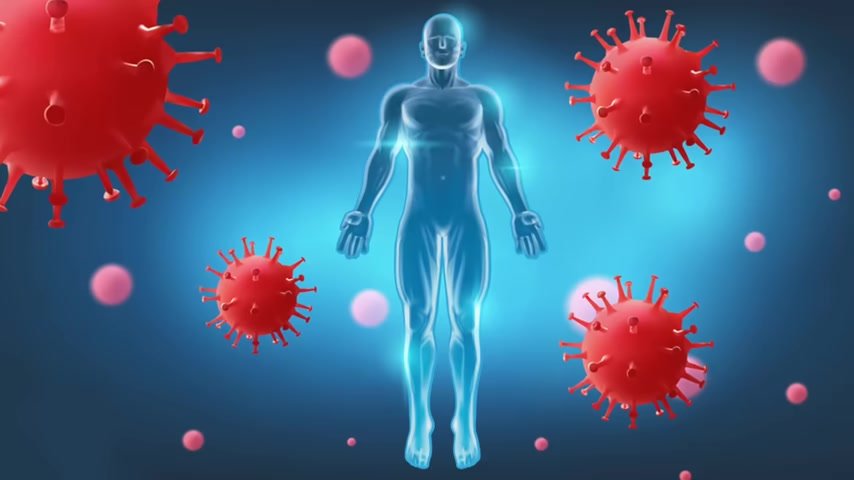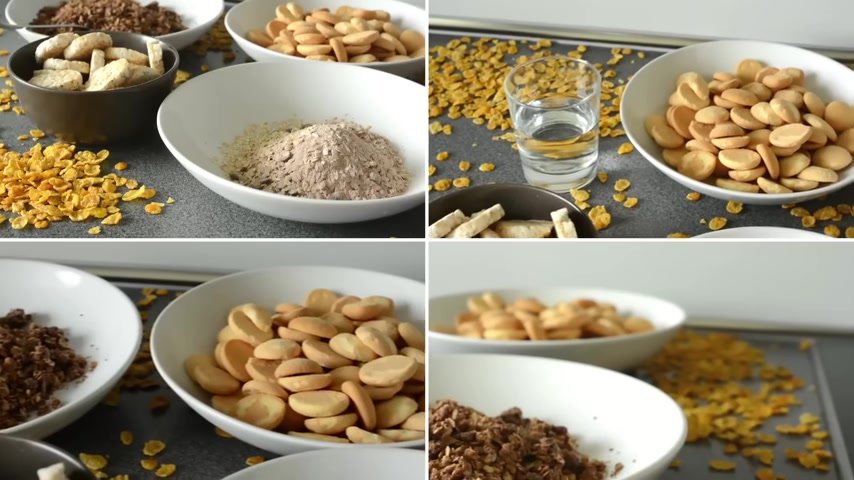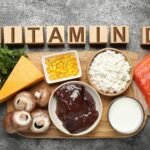Table of Contents
Autophagy, the body’s natural cellular cleaning and recycling process, has gained significant attention in recent years for its potential health benefits. By removing damaged or dysfunctional cellular components and repurposing their building blocks, autophagy can contribute to improved cellular function, reduced inflammation, and even longevity.
Autophagy explained
Let’s talk about the truth of something called autophagy. It’s a fascinating biological process that’s always happening to a certain degree, and I’m going to get into all the triggers and how long it takes to get in autophagy, but this is what autophagy does:
What is autophagy?
it self-eats. It eats the junk from your body and transforms that into usable things. So it’s like a very complex junkyard with a recycling unit right next to it.
And when I say junk, I’m talking about:
| Cellular “Junk” | Description |
|---|---|
| Unusable, damaged proteins | Found in the body and trigger inflammation. |
| Organelles | These are essentially tiny “machines” inside your cells that operate on an assembly line to make certain things. You have the mitochondria; you have other machines that make specific proteins. If there is any damage that goes on to that machinery, well, autophagy can take care of it. |

Autophagy helps to get rid of:
- Pathogens like bacteria, fungus, mold, and viruses, all of which can trigger inflammation.
- Viral antigens. These are molecules on viruses that signal your immune system to react, potentially causing inflammation, and are involved in antibody production (which we won’t delve into here). The good news: autophagy clears them out!
So if there’s something in the background that is stirring up inflammation in your body, it can kind of wipe that out and start from like a ground zero level where you don’t have that anymore. This is why autophagy is considered kind of like an anti-aging cleaning system of the body. And it doesn’t just clean stuff up, it provides new raw material to build new things, new cells, as well as to provide fuel when you need it.
Now how do you get into autophagy? Well, you’re already probably in autophagy to some degree. The question is: is it significant or not? To really create any type of significant autophagy, you need to deplete your reserves to some degree. You have to deplete some energy reserve in the body.

And before I get into that, here are two things that will stop autophagy very fast:
- Sugar, because it’s a fuel source.
- Protein, to a significant degree. Any large amount of calories will halt autophagy. Remember, autophagy is about recycling proteins and related components. If ample protein is readily available, your body won’t bother recycling old proteins.
Autophagy and cancer
All right, so now here’s a crucial point: healthy cells and cancer cells. This next part is very important because while autophagy sounds beneficial, there’s a paradox: it can actually be harmful regarding cancer.
Autophagy acts as a strong protective barrier against disease. By constantly cleaning up damaged mitochondria, you can potentially bypass and avoid cancer, as well as other diseases. However, if cancer has already developed, autophagy can actually fuel its progression and growth. Why? Because autophagy provides the resources and fuel that cancer cells thrive on.
Researchers are exploring this complex relationship. One approach involves developing autophagy-inhibiting drugs to stop this process and potentially enhance anti-cancer therapies. One such drug is hydroxychloroquine. However, drugs often come with side effects. As a result, research is also investigating non-toxic inhibitors of autophagy for potential use in cancer treatment.
I’ll provide a link below to a research paper that delves into this topic and lists natural, mostly plant-based, inhibitors of autophagy that might be relevant for those dealing with cancer.
Important Note: These natural inhibitors are not something to worry about if you don’t have cancer. They are actually healthy for healthy cells. But unfortunately, autophagy is a double-edged sword: beneficial when healthy, potentially harmful when unhealthy.

Sadly, many people wait until they get sick or develop cancer before exploring ways to stimulate more autophagy.
Hopefully, this information motivates you to take action!
How to boost autophagy
| Strategy | Details |
|---|---|
| Fasting | – Fasting is the most potent trigger for autophagy – Autophagy starts as early as 24 hours of fasting, with peak levels around 48 hours – Significant autophagy occurs after 2-4 days of fasting as glucose and insulin levels drop – Prolonged fasting beyond 4 days may lead to a decline in autophagy as the body enters a more catabolic state |
| Low-Sugar, Low-Carb Diet | – Consuming a low-sugar, low-carb diet can help deplete glycogen stores and force the body to rely on autophagy for energy – Moderate protein intake is crucial, as excess or low protein can impair the autophagy process |
| Intermittent Fasting | – Intermittent fasting, such as the 16:8 or 18:6 method, can help maintain a state of mild cellular stress that supports autophagy on a regular basis – The frequency of prolonged fasts (24-48 hours) can vary based on individual factors and goals, but consistency is key |
| Exercise | – Aerobic exercise (lower intensity, longer duration) is more effective for stimulating autophagy compared to high-intensity exercise – Resistance training also triggers autophagy by creating cellular stress and promoting the renewal of muscle cells |
| Phytonutrients and Adaptogens | – Certain plant-based compounds, such as resveratrol and spermidine, have been shown to have autophagy-enhancing properties to a certain degree |
| Dry Fasting or Water Fasting | – Dry fasting, where no food or water is consumed, can induce autophagy more deeply than water fasting – Dry fasting should be approached with caution and under the guidance of a healthcare professional |
| Electrolytes, Nutrients, and Sea Salt | – While fasting, it’s important to supplement with electrolytes, vitamins, and minerals to support overall health and prevent deficiencies – Consuming calories, even from healthy sources, can disrupt the autophagy process |
Now, let’s dive into the seven powerful ways to trigger more autophagy:
1. Fasting
Hands down, fasting is the most potent way to trigger autophagy. Why? Because it depletes your excess calories, forcing your body to become more efficient by recycling damaged proteins.
- How many hours of fasting?
While some level of autophagy is always active, it can be significantly amplified by fasting. The intensity increases as you fast longer. - Fasting and Fuel Sources:
- Think of your metabolism for sugar and fat like dimmer switches.
- Around the 18-hour mark of fasting, these switches begin to turn up.
- At 48 to 72 hours, the effect becomes even more pronounced.

Important Considerations:
- Pre-Fast Diet:
What you eat before a fast matters! A diet high in sugar and carbohydrates requires a longer fasting period to deplete those readily available fuel sources and tap into glycogen stores. A low-sugar, low-carbohydrate diet allows you to experience the benefits of autophagy more quickly. - Protein Intake:
To maximize autophagy, a moderate protein intake is ideal. This allows for complete digestion and encourages the body to recycle existing proteins. - Fat and Autophagy:
Fat has the least impact on autophagy compared to sugar and protein. However, snacking on fat throughout the day, even healthy fats, will still provide calories and reduce the autophagy effect. Fasting means no calories, though you can have nutrients like vitamins, minerals, and sea salt.
2. Calorie Restriction (Occasionally)
While not as powerful as extended fasting, cutting down your calories occasionally, to say 500 calories for a day (not as a regular practice), can help increase autophagy, especially if you’re transitioning into a longer fast. Consuming a reduced amount of calories, particularly from carbs and protein, helps your body deplete those fuel sources more rapidly, leading to faster entry into autophagy.
Consistently practicing intermittent fasting, aiming for a minimum of 18 hours (and ideally pushing to 20 hours), is an effective way to boost autophagy.
4. Exercise
Exercise depletes your body’s resources, stimulating autophagy. While aerobic exercise (lower intensity, longer duration) generally triggers more autophagy than high-intensity resistance training, both are beneficial.
- Combining Intermittent Fasting and Exercise:
Working out during your fasting window can further amplify autophagy, as it compounds the depletion of your body’s resources, increases metabolism, and uses up ATP (cellular energy). - Fat Burning and Water:
Did you know that your body releases water when it burns fat? So, even during a fast, you’re not completely deprived of water.
5. Reduce Carbs
To maximize autophagy, minimize your carbohydrate intake. We’ve already covered why this is important!
6. Moderate Protein Intake
Keep your protein intake at a moderate level (not excessively high), as discussed previously.
7. Harness Phytonutrients
Certain phytonutrients can induce a stress response (a good kind of stress!) in the body that triggers autophagy. Look for these beneficial compounds in:
- Coffee
- Tea (especially green tea)
- Berberine
- Adaptogens (such as ashwagandha)
- Certain mushrooms
- Ginger
Cancer and Autophagy Inhibition
For individuals with cancer, incorporating natural inhibitors of autophagy into their health regimen may be beneficial as part of a comprehensive strategy. These inhibitors can help starve cancer cells, working synergistically with a low-sugar diet to further limit their fuel supply.
Autophagy inhibitors
Here are some natural autophagy inhibitors currently being researched:
- Stony Sponge: Yes, the type you might find in your kitchen! Stony sponge contains compounds that have shown potential in inhibiting autophagy.
- Apigenin: This powerful phytochemical is found in various foods (do a quick search to explore its dietary sources).
- Curcumin: Found in turmeric, this compound is known for its anti-inflammatory and antioxidant properties.
- Black Cumin Seed: Another potent seed with a variety of potential health benefits.
- Thunder God Vine: A traditional Chinese medicine herb.
- Retinol: The active form of vitamin A.
Research into these natural inhibitors is ongoing, with about 54% of studies in this area being conducted by drug companies seeking to extract and potentially patent these compounds. While I have my reservations about the pharmaceutical industry, finding treatments with minimal side effects would be a positive development.
key Points
- Autophagy is an incredible process. It basically eats up the junk in your body and transforms it into usable things.
- This “junk” is unusable damaged proteins, which trigger inflammation. It also helps get rid of pathogens and viral antigens.
- Autophagy is like an anti-aging cleaning system of the body. But it doesn’t just clean things up—it provides raw material to build new cells and provide fuel when you need it.
- Two major things will stop autophagy: sugar and protein. But, any significant amount of calories will also stop autophagy.
- Autophagy may act as a strong protective barrier against disease. But, if you already have cancer, autophagy can aid the growth and progression of cancer.
- Autophagy can help you if you’re healthy and can hurt you if you’re not healthy. Unfortunately, many people wait until they get sick before they utilize strategies like autophagy.
- The best way to trigger autophagy is to do fasting. You’ll notice more positive benefits from autophagy once you get into about 18 hours of fasting. You’ll notice even more benefits when you get up to 48 to 72 hours of fasting. You can take electrolytes, nutrients, and sea salt, but you shouldn’t consume any calories while fasting.
- An additional simple strategy to see more benefits from autophagy is to go on a low-sugar, low-carb diet. Consuming a moderate amount of protein is also crucial—not excess protein or low protein.
- Exercise is important to stimulate autophagy. Aerobic exercise (lower intensity and longer duration) will stimulate autophagy more than high-intensity exercise. But, I suggest doing both forms of exercise for different benefits.
Certain phytonutrients and adaptogens can also trigger autophagy to a certain degree.
DATA
https://www.ncbi.nlm.nih.gov/pmc/articles/PMC8467030
Research paper deep-dive into natural plant-based inhibitors of autophagy:
https://www.nature.com/articles/s41598-021-93100-3
FAQ
What increases autophagy the most?
Autophagy, the cellular recycling process, can be stimulated through various methods. The two most potent triggers for autophagy are:
Fasting
Prolonged fasting, typically 24-48 hours, is considered the most effective way to induce significant autophagy. When the body is deprived of nutrients during fasting, it initiates autophagy to recycle damaged cellular components and provide energy.
Exercise
High-intensity exercise, especially resistance training, has been shown to stimulate autophagy. The cellular stress and energy depletion caused by intense workouts trigger the autophagy process.
Other factors that can increase autophagy include:
- Calorie restriction
- Ketogenic diet
- Certain supplements like resveratrol and spermidine
The key is to create a state of cellular stress, either through nutrient deprivation or high-intensity physical stress, to activate the autophagy pathway.
What is the fastest way to induce autophagy?
The fastest way to induce autophagy is through prolonged fasting. Animal studies have shown evidence of autophagy starting as early as 24 hours of fasting, with peak autophagy levels reached around 48 hours of fasting.
In humans, significant autophagy is believed to occur after 2-4 days of fasting, once glucose and insulin levels drop considerably. However, the optimal fasting duration for autophagy can vary based on individual metabolism and health status.
It’s important to note that extended fasting may not be suitable or safe for everyone, especially those with certain medical conditions. Consulting a healthcare professional before attempting prolonged fasts is highly recommended.
What is the best exercise for autophagy?
High-intensity exercise, particularly resistance training, has been found to be the most effective for stimulating autophagy. The cellular stress and energy depletion caused by intense workouts trigger the autophagy process.
Some of the best exercises for autophagy include:
- Strength training (e.g., weightlifting, bodyweight exercises)
- High-intensity interval training (HIIT)
- Sprinting
- Cycling
These types of exercises create significant metabolic stress, leading to the activation of autophagy pathways. In contrast, low-intensity endurance exercises, such as steady-state cardio, may not be as effective for inducing autophagy.
Combining exercise with fasting can have a synergistic effect, as the cellular stress from both methods can further enhance the autophagy response.
What drinks increase autophagy?
While there are no specific drinks that directly increase autophagy, certain beverages can support the conditions that promote autophagy:
Water
Staying hydrated is essential, as dehydration can impair cellular function and disrupt the autophagy process.
Black or green tea
These teas contain polyphenols, such as epigallocatechin gallate (EGCG), which have been shown to stimulate autophagy in some studies.
Coffee
Moderate coffee consumption may support autophagy due to the presence of caffeine and chlorogenic acids, which have been linked to autophagy-enhancing effects.
Bone broth
Bone broth contains amino acids and collagen, which can help support cellular health and potentially contribute to autophagy.
Apple cider vinegar
Some research suggests that acetic acid in apple cider vinegar may have autophagy-inducing properties.
It’s important to note that while these beverages may support autophagy, the most potent triggers remain fasting and high-intensity exercise.
Autophagy Fasting Timeline
The timeline for autophagy during fasting can be summarized as follows:
24 hours of fasting
Animal studies have shown evidence of autophagy starting as early as 24 hours of fasting.
48 hours of fasting
Autophagy levels are believed to peak around 48 hours of fasting, as glucose and insulin levels drop significantly.
2-4 days of fasting
In humans, substantial autophagy is thought to occur after 2-4 days of fasting, once the body has depleted its glucose and glycogen stores.
Beyond 4 days
Prolonged fasting beyond 4 days may lead to a decline in autophagy as the body enters a more catabolic state and begins to break down muscle tissue for energy.
It’s important to note that the autophagy timeline can vary based on individual factors, such as metabolism, body composition, and overall health status. Consulting a healthcare professional before attempting extended fasts is highly recommended.
Signs of Autophagy
While autophagy is a cellular process that cannot be directly felt or observed, there are some potential signs and symptoms that may indicate its occurrence:
Increased Ketone Levels
As the body enters a fasted state, it starts to produce ketone bodies, which can be measured in the blood, breath, or urine. Elevated ketone levels are a sign that the body is in a state of ketosis, which is associated with increased autophagy.
Reduced Appetite
Autophagy can lead to a decrease in appetite due to changes in hormone levels, such as increased glucagon and decreased insulin, which can suppress hunger signals.
Fatigue
The metabolic shifts and cellular stress associated with autophagy can sometimes result in temporary fatigue or low energy levels, especially during the initial stages of fasting or a ketogenic diet.
Improved Cognitive Function
Some research suggests that autophagy may have beneficial effects on brain health and cognitive function, potentially leading to improved focus, memory, and mental clarity.
Weight Loss
Autophagy can contribute to weight loss by promoting the breakdown and recycling of damaged or excess cellular components, including fat stores.
It’s important to note that these signs can also be influenced by other factors, and the presence or absence of these symptoms does not necessarily indicate the level of autophagy occurring in the body.
Autophagy Fasting Benefits
Fasting-induced autophagy has been associated with a range of potential health benefits, including:
Cellular Rejuvenation
Autophagy helps remove damaged or dysfunctional cellular components, allowing for the replacement and renewal of healthy cells, which can contribute to overall cellular health and longevity.
Reduced Inflammation
Autophagy has been linked to the reduction of inflammation, which is a contributing factor to many chronic diseases.
Improved Metabolic Health
Autophagy can enhance insulin sensitivity and glucose regulation, potentially reducing the risk of type 2 diabetes and other metabolic disorders.
Neuroprotection
Some studies suggest that autophagy may play a role in protecting the brain and nervous system, potentially reducing the risk of neurodegenerative diseases like Alzheimer’s and Parkinson’s.
Cancer Prevention
Autophagy may help prevent the development of cancer by removing damaged or mutated cells before they can become cancerous.
Longevity
By promoting cellular renewal and reducing the accumulation of damaged cellular components, autophagy has been linked to increased lifespan and healthspan in various animal studies.
It’s important to note that while these potential benefits are promising, more research is needed to fully understand the long-term effects of fasting-induced autophagy in humans.
Side Effects of Autophagy
While autophagy is generally considered a beneficial cellular process, there are some potential side effects and considerations to be aware of:
Temporary Fatigue and Low Energy
The metabolic shifts and cellular stress associated with autophagy can sometimes lead to temporary fatigue or low energy levels, especially during the initial stages of fasting or a ketogenic diet.
Dehydration
Prolonged fasting can increase the risk of dehydration, which can have negative impacts on overall health and disrupt the autophagy process.
Electrolyte Imbalances
Extended fasting can lead to the depletion of essential electrolytes, such as sodium, potassium, and magnesium, which can cause various symptoms and health issues.
Muscle Loss
In prolonged fasting or severe calorie restriction, autophagy may lead to the breakdown of muscle tissue, which can be detrimental, especially for individuals with certain health conditions or fitness goals.
Nutrient Deficiencies
Fasting or restrictive diets can potentially lead to nutrient deficiencies if not properly planned and supplemented, which can have negative consequences for overall health.
Disordered Eating
Attempts to induce autophagy through extreme fasting or calorie restriction may trigger or exacerbate disordered eating behaviors, particularly in individuals with a history of eating disorders.
It’s crucial to consult with a healthcare professional before embarking on any significant dietary changes or fasting regimens to ensure safety and address any potential risks or side effects.
Autophagy Definition
Autophagy is a cellular process in which damaged or dysfunctional components are broken down and recycled to provide energy and raw materials for the cell. The word “autophagy” comes from the Greek words “auto” (self) and “phagy” (to eat).
During autophagy, the cell forms specialized structures called autophagosomes, which engulf and transport the unwanted cellular components to lysosomes. The lysosomes then break down and digest these components, releasing the building blocks (such as amino acids, lipids, and nucleic acids) that the cell can then use to create new, healthy cellular structures.
Autophagy is a critical cellular process that serves several important functions:
- Cellular Cleaning and Renewal: Autophagy helps remove damaged, misfolded, or unwanted proteins and organelles, keeping the cell’s internal environment clean and functioning optimally.
- Energy and Nutrient Recycling: During times of nutrient deprivation or cellular stress, autophagy can break down and recycle cellular components to provide energy and raw materials for the cell to use.
- Pathogen Defense: Autophagy can help eliminate invading pathogens, such as bacteria and viruses, by engulfing and degrading them.
- Cellular Adaptation: Autophagy allows cells to adapt to changing environmental conditions and stresses, such as starvation, hypoxia, or the presence of toxic substances.
Impairment of the autophagy process has been linked to the development of various diseases, including neurodegenerative disorders, cancer, and metabolic diseases. Understanding and modulating autophagy is an active area of research in the fields of aging, disease prevention, and therapeutic development.
How Often Should You Fast for Autophagy?
There is no single recommended frequency for fasting to induce autophagy, as the optimal fasting regimen can vary depending on individual factors and goals. However, some general guidelines and considerations include:
Intermittent Fasting
Intermittent fasting, such as the 16:8 or 18:6 method (fasting for 16-18 hours and eating within an 8-6 hour window), can help maintain a state of mild cellular stress that may support autophagy on a regular basis.
Periodic Prolonged Fasts
Longer fasts, typically 24-48 hours, are considered more effective for triggering significant autophagy. However, these extended fasts should be approached with caution and under the guidance of a healthcare professional, especially for those with underlying health conditions.
Frequency
The frequency of prolonged fasts can vary based on individual factors and goals. Some people may choose to incorporate a 24-48 hour fast once or twice per month, while others may fast more or less frequently.
Consistency
Maintaining a consistent fasting routine, whether it’s intermittent fasting or periodic prolonged fasts, may be more important than the specific frequency. Consistency can help the body adapt to the fasting state and optimize the autophagy response.
Individual Needs
The optimal fasting frequency for autophagy may also depend on factors such as age, activity level, health status, and personal preferences. It’s essential to work with a healthcare professional to determine the most appropriate fasting regimen.
Ultimately, the key is to find a fasting approach that is sustainable, safe, and aligns with your individual health goals and lifestyle. Gradual experimentation and monitoring of your body’s response may be necessary to determine the optimal fasting frequency for autophagy.




